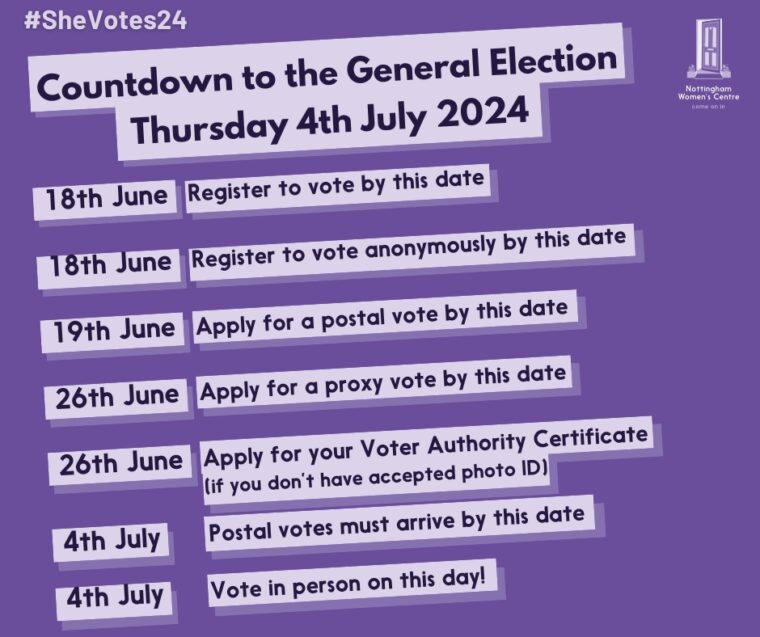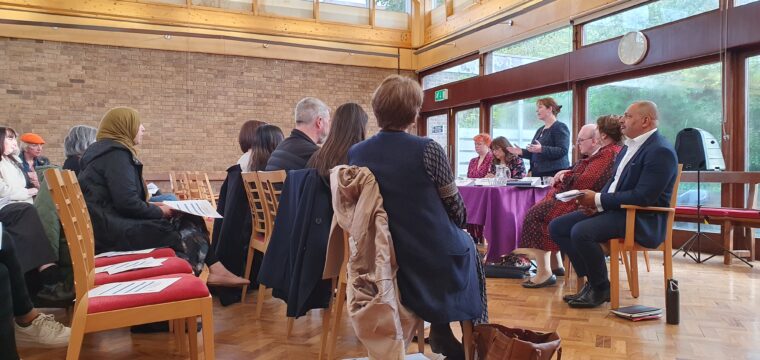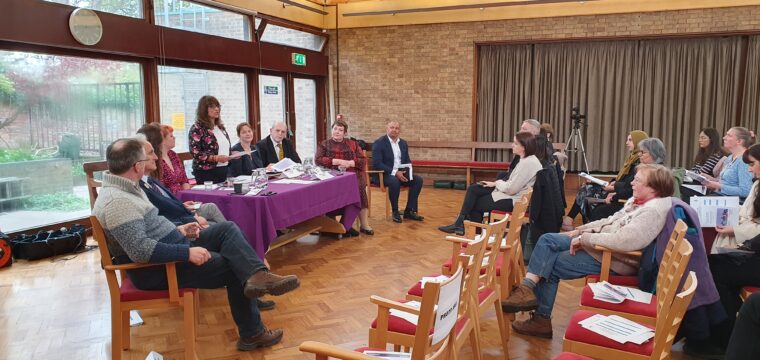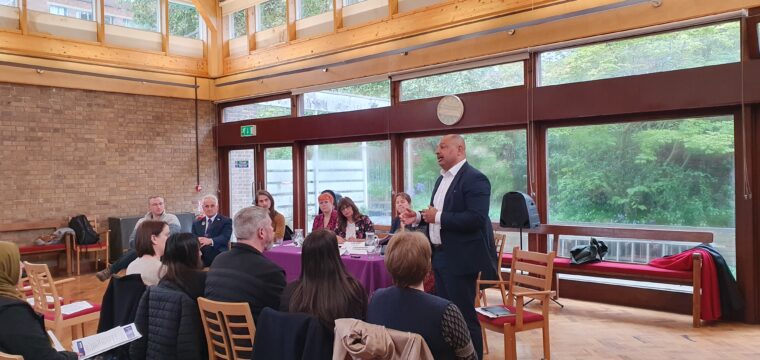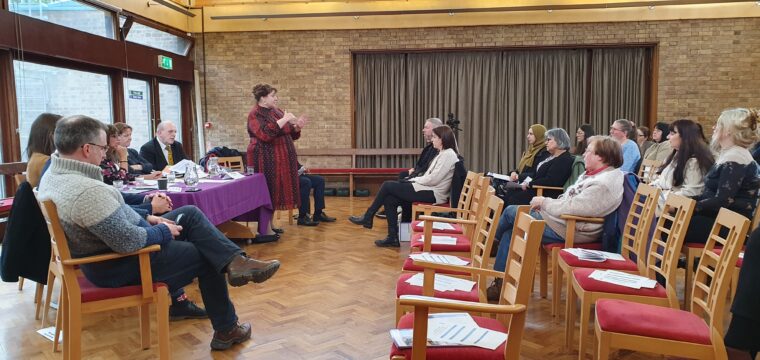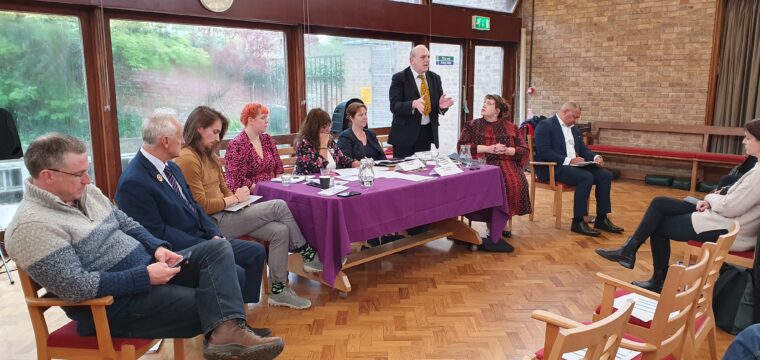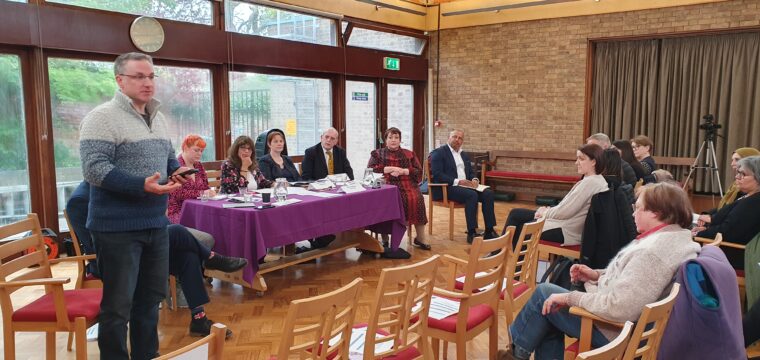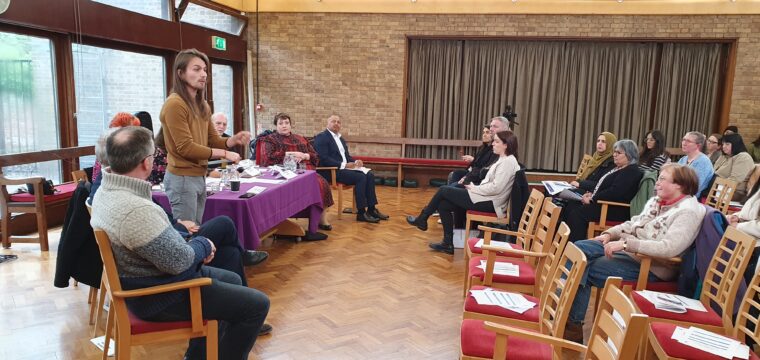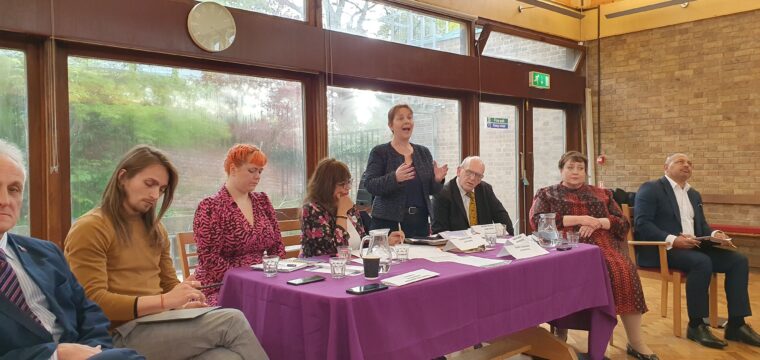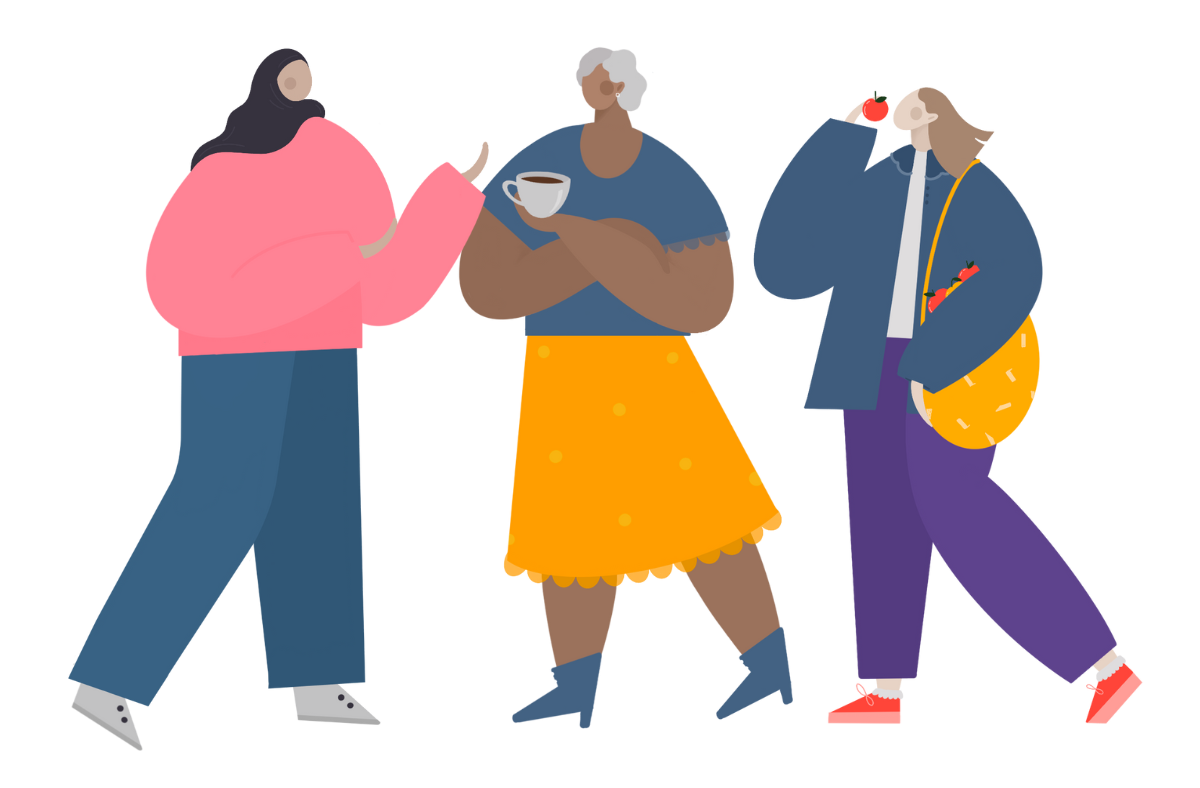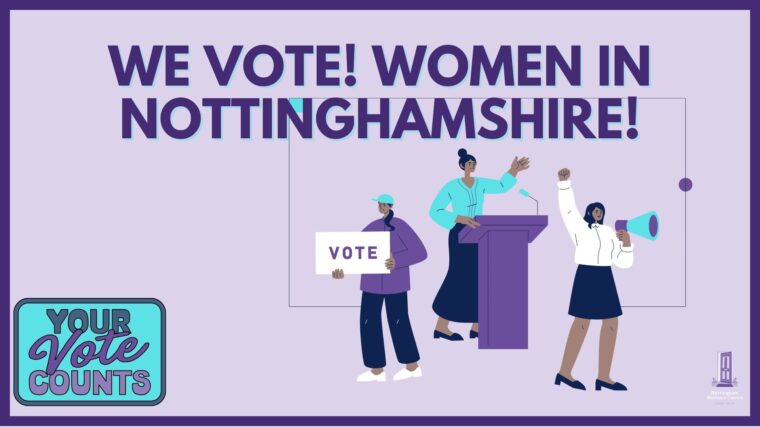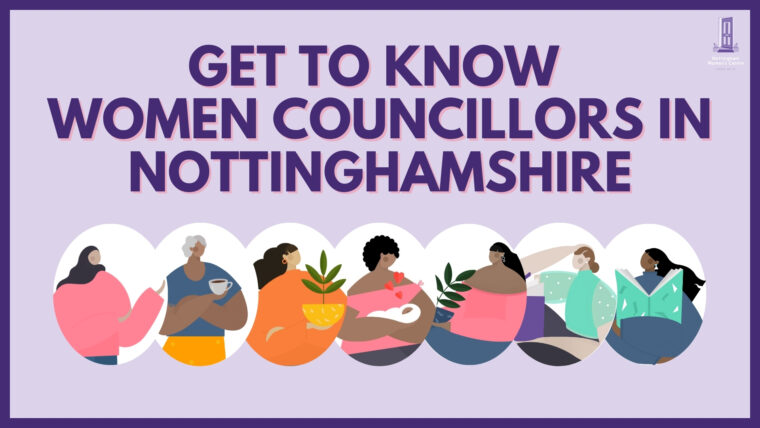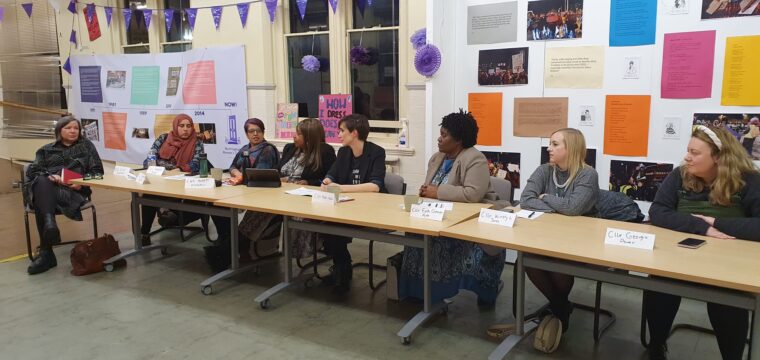
The year 2024 brought with it local and general elections across the country. For people in Nottinghamshire and Derbyshire, this included a unique opportunity to elect the first ever Mayor for the East Midlands Combined County Authority, and a Police and Crime Commissioner. A hugely important local election that will shape the lives of local communities for decades to come!
Nottingham Women’s Centre is excited to bring you this Election Edition of our policy updates, featuring our election campaign and current issues on our radar!
1. What We’re Working On
Prosecution for School Non-Attendance and Impact on Women
Prosecuting parents for their children’s non-attendance in school is yet another government intervention that has failed to consider and support the intersecting needs and experiences of women. In previous research by the Centre for Crime and Justice Studies, 71% of the 16,406 people prosecuted for truancy in 2017 were women, 74% of those convicted were women, 80% of those given a suspended sentence were women, 83% of those given a community order were women, and nine of the ten people sent to prison were women.
Recently, through our Ministry of Justice project, Nottingham Women’s Centre has seen several women prosecuted and fined with huge sums of up to £2500 for their children’s absence from school. These women are often single mothers with no previous prosecutions. Our preliminary findings show significant negative impact, evidenced in the experiences of these women. These impacts include enormous financial pressure in the current high cost of living, damaged parent-child relationship, negative barriers to work due to a criminal record, and separation from children due to prison custody.
In the words of one woman:
I was trying to change jobs during the time and my new employer asked me, ‘What were you sentenced for?’
Another woman told us:
My daughter is being bullied in school and I have to choose between watching her get bullied and self-harm as a result, or face prosecution.
Research shows that reasons for school absences – which includes bullying, and lack of support for children’s mental health – are often beyond the control of parents/mothers and require a holistic and supportive approach, rather than the current punitive stance.
Our Actions
We have steered strategic meetings with Nicholas Lee (Director of Education, Nottingham City Council) and Councillor Cheryl Bernard (Executive Member for Children, Young People and Education), Councillor Georgia Power (Bestwood ward) and MP Nadia Whittome towards driving crucial change to support women and parents towards improving school attendance.
Following this, in February MP Nadia Whittome submitted two written parliamentary questions regarding school places and the waiting times for Special Educational Needs (SEN) Assessment which impacts on school non-attendance.
As part of our campaign on school non-attendance, we will be running listening sessions with women who have experience of this issue to learn what works and how to support parents, children and schools to improve school attendance.
Your Voice
We would like to hear from you (or if you are a group / organisation that works with women) if you:
• Have experience of prosecution or fines for children’s school non- attendance.
• Are passionate about this issue and would like to contribute to this campaign.
Please email ezinwanne@nottinghamwomenscentre.com.
WOMEN’S HEALTH MATTERS Project
We’ll soon be launching our Women’s Health Matters (WHM) project! Women’s Health Matters will run as a series of workshops aimed to raise awareness about gynaecological conditions and reproductive health issues, to educate and empower women on health issues, and to celebrate women’s health and bodies.
Your Voice
If you have specific topics on women’s health you’d like to hear about or would like to be involved in the project, please email ezinwanne@nottinghamwomenscentre.com.
2. What We’ve Achieved
The Impact of Alcohol Tags on Women
Since March 2021, courts in England have introduced Alcohol Abstinence and Monitoring Requirements (AAMRs) where drinking was a factor in a crime. An alcohol tag is imposed within an AAMR for adult offenders as a requirement of a community order or suspended sentence order for an alcohol-related offence, or an associated offence that is alcohol-related.
AAMRs ban offenders from drinking alcohol for up to 120 days and offenders must wear an alcohol monitoring tag as part of their community sentence. Compliance is monitored electronically through the alcohol tag which monitors the presence of alcohol in offender’s sweat. A recent report shows high compliance rates, however there is yet no evidence of their impact on offenders. It is reported that 70% of persons recovering from alcohol addiction will relapse during the first year, particularly the first three months.
Our Actions
Through its case work, Nottingham Women’s Centre has identified a case on the adverse impact of alcohol tags on women’s health and wellbeing. We submitted a request for a written parliamentary question on alcohol tags to MP Nadia Whittome. On our behalf, she asked the Secretary of State for Justice whether the Department conducted a women-specific impact and health needs assessment prior to the roll out of the use of alcohol monitoring tags.
Your Voice
If you’ve worked with women undergoing alcohol tag monitoring, or would like to feed into our briefing to the government please email ezinwanne@nottinghamwomenscentre.com.
Our Letter to Nottingham City Council on Budget Cuts
Nottingham Women’s Centre wrote a letter to Councillor David Mellen, the previous Leader of Nottingham City Council, and Mel Barrett, the previous Chief Executive of Nottingham City Council stating the collective stance of women and women’s organisations on the proposed budget cuts. We expressed a deep concern for the disproportionate impact of budget cuts on women and women’s organisations, and emphasized the importance of considering gender equality implications in budgetary decision-making processes, urging the Council Leaders to prioritise the needs of women and marginalised communities.
3. What’s On Our Radar
Shortage of Refuge Spaces: Shortage of refuge spaces can put survivors of domestic abuse at risk. In addition to the lack of available spaces, refuge providers face significant challenges in resettling women with no recourse to public funds as they do not have access to housing benefits and therefore tend to stay longer in refuge spaces.
Lack of support for parents who have experienced child removal in Nottingham. Pause Practices that work to improve the lives of women who have had – or are at risk of having – more than one child removed from their care, closed their service in Derbyshire due to no further funding from the local authority. Other support organisations that serve England and Wales are Family Rights Group, and Post Adoption Centre.
Lack of school places for child survivors of domestic abuse. In a 2023 report from The Domestic Abuse Commissioner, “five key themes emerged from the discussions with frontline practitioners about the challenges they face while supporting child victims of domestic abuse. These were (1) a lack of professional understanding of domestic abuse, (2) a lack of co-ordinated multi-agency working, (3) a high level of local variation in approach, (4) a lack of knowledge and consensus regarding best practice and (5) a lack of support and funding.” According to Nottinghamshire Police, earlier this year, “an amendment to the Victims and Prisoners Bill was made which once enacted will make it a legal requirement for all forces in the country to participate (with Operation Encompass). The hope is that the initiative will help reduce the long-term impacts of domestic abuse on children through providing them with early intervention and will enable teachers to gain a better understanding of the impact of domestic abuse on young people. It may also help partner agencies to direct resources where they are most needed, reducing risk to children and families.”
Women released from prison with no fixed abode are often assessed as not having priority needs, increasing the likelihood of their reoffending. This is despite recognition by The Prison Reform Trust that “appropriate accommodation for people who offend is the foundation of successful rehabilitation(… and) can provide the anchor for a previously chaotic life and act as a springboard for other crucial steps – such as getting and keeping a job, and accessing health care or drug treatment.” Despite this recognition, “an inspection of Through the Gate resettlement services for short-term prisoners by HM Inspectorate of Probation and HM Inspectorate of Prisons, found that 13% of women were released from prison to no fixed abode and only 22% were released with secure permanent accommodation. Social housing can often not be applied for while the women are still in prison which means it has to be resolved at short-notice on release.”
4. Women’s Voices & Votes
Political Engagement Workshops
This March, we hosted two workshops to encourage women to be more politically engaged!
We Vote! Women in Nottinghamshire! was a brilliant workshop to celebrate the power of women’s voices & our right to vote! There was discussion on how Parliament works, voter registration, and how to vote.
Get to Know Women Councillors in Nottinghamshire was an inspiring and insightful event, where women could connect with local women councillors to discuss the experiences of being a politician and the different pathways to starting a political career.
Councillors in attendance at the second workshop were Councillor Audrey Dinnall (Leen Valley), Councillor Neghat Khan (Dales), Councillor Kirsty Jones (Mapperley), Councillor Faith Gakanje-Ajala (Bilborough), Councillor Shuguftah Quddoos (Berridge), Councillor Linda Woodings (Basford), Councillor Helen Kalsi (Bilborough) and Councillor Georgia Power (Bestwood).
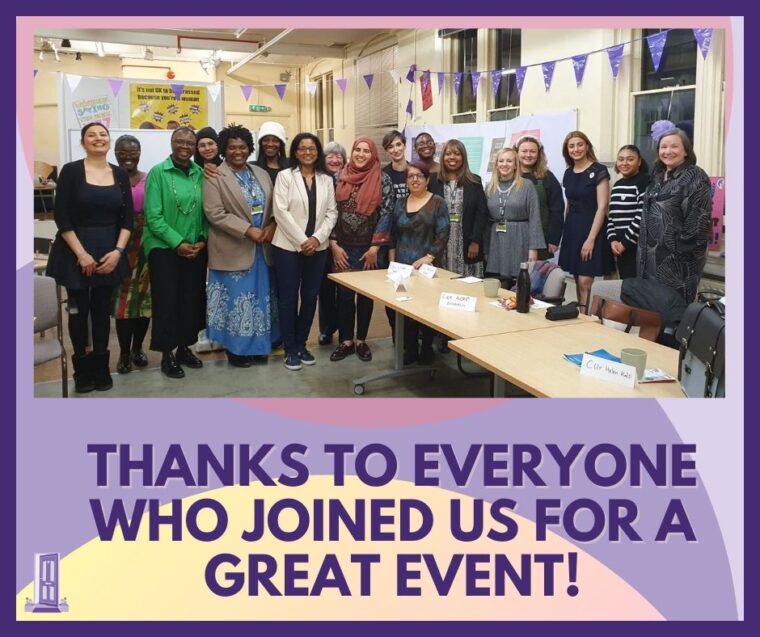
Check out this great blog about this event written by Penny, one of our volunteers…
LOCAL ELECTIONS: EAST MIDLANDS COMBINED COUNTY AUTHORITY AND POLICE AND CRIME COMMISSIONER (PCC)
In May, Nottinghamshire had two important elections. That of the Police and Crime Commissioner and the new East Midlands Mayor for the Combined County Authority.
Nottingham Women’s Centre would like to extend our congratulations to Claire Ward for her recent victory in the mayoral election for the East Midlands Combined County Authority and Gary Godden for his win as the new Police and Crime Commissioner for Nottinghamshire. We look forward to collaborating with the Mayor and Police and Crime Commissioner to bring about meaningful change for women in our communities.
She Votes: Nottingham Women’s Manifesto for the Mayor & PCC
Nottingham Women’s Centre launched a manifesto, aimed at ensuring that women’s needs were not only heard but also prioritised at the Mayoral and PCC elections. Being our first Mayoral election, it was an opportunity to ensure that the voices of women fundamentally shape the policies and operations of the new Mayor and Combined Authority.
This manifesto is a reflection of the diverse challenges and aspirations of women in our communities, on issues that fall within the powers of the Combined Authority: housing, transport, skills and economic development, and net zero.
Our Overarching Asks to the EMCCA Mayor & PCC
- Establishment of mechanisms through which women’s voices in all their diversity are heard and consulted in decision making across the region with representation from a diverse range of women’s groups and organisations.
- Funding for specialist women’s organisations and groups who provide valuable support to women across these policy areas and are often best placed to deliver the right services, at the right time to those who need it the most.
- Transparency and accountability through the publication of comprehensive equality impact assessments for all decisions, especially where investments are being made, and collection of disaggregated data across gender, ethnicity, religion, disability, sexual orientation, and other protected characteristics.
Read our full Mayor/PCC Manifesto for Women here:
She Votes Women’s Hustings in April
Nottingham Women’s Centre was delighted to welcome candidates standing for Mayor and PCC from across the political spectrum to our She Votes: Women’s Hustings on 24th April. This included: Claire Ward (Labour), Frank Adlington Stringer (Green), Helen Tamblyn-Saville (Liberal Democrats), Alan Graves (Reform UK) and Matt Relf (Independent), for the East Midlands Mayor Election, and Caroline Henry (Conservative), Gary Godden (Labour) and David Watts (Liberal Democrats) for the Police Crime Commissioner Election. It was a well-attended event that provided a space for women to question the candidates on issues that impact their lives. Those who could not attend sent questions in advance through the Centre.
THE GENERAL ELECTION
Nottingham Women’s Centre would like to extend our heartfelt congratulations to the elected Members of Parliament (MPs) in Nottingham and Nottinghamshire. We are keen to work with the new government to ensure the needs of women are at the centre of policy. The 2024 General Election brings us closer to the goal of 50/50 representation as women now make up 40% of the House of Commons. Now the election is over, we ask the elected MPs to take tangible steps to address the Women’s Organisations Network Manifesto asks for women in Nottingham and ensure that the needs of women and girls are at the heart of policy making.
Nottingham Women’s Organisation Network (WON) Women’s Manifesto
The Women’s Organisations Network (WON) is the largest coalition of women’s groups and organisations in Nottinghamshire, with over 100 members. We launched our first combined women’s manifesto before the general election. There are proposals for achievable change to improve the lives of women and girls in Nottinghamshire and beyond. The manifesto was developed by a steering group of five organizations (Nottingham Women’s Centre, Juno Women’s Aid, Equation, Nottinghamshire Sexual Violence Support Services, and POW Nottingham). It incorporates contributions from WON member organisations, survey responses from our wider network of women, and current research on women, by women.
This manifesto includes and supports the policy asks of many other women’s organisations and coalitions nationally that we are connected to – the #SheVotes24 Coalition, the National Women’s Justice Coalition, Agenda Alliance, Women’s Resource Centre, End Violence Against Women Coalition, Women’s Budget Group, and Rape Crisis England and Wales amongst others.
Nottingham Women’s Organisation Network calls on the new Government for a commitment to:
- A dedicated role for a Secretary of State for Women and Girls in cabinet to champion and prioritise the needs of women and girls, at the highest level of politics as called for by Agenda Alliance.
- Policy making that centres women through a gendered approach to the design, monitoring and evaluation of policies. Central to this is the collection of disaggregated data at the local and national level.
- Sustainable funding for community-based women’s centres and specialist women’s organisations, especially those that are run by and for specific groups (such as Black women’s organisations).
Read our WON manifesto asks here
OUR QUESTIONS TO PARLIAMENTARY CANDIDATES
Nottingham Women’s Organisations Network wanted to know about the commitment of all political parties to the issues affecting women and girls. We asked six questions to all parliamentary candidates in Nottingham/ Nottinghamshire to find this out. Read our six questions and the responses we received from candidates:
COUNCILLOR NEGHAT KHAN & MAYOR CLAIRE WARD AT WON MEETING IN JUNE

Nottingham Women’s Centre congratulates Councillor Neghat Khan on her appointment as the new Leader of Nottingham City Council. We were excited to welcome Councillor Neghat Khan and Mayor Claire Ward to the Women’s Organisation Network Meeting in June. This was an opportunity to hear about the priorities of the two new local leaders, and share perspectives from the women’s sector. We hope to continue this collaborative relationship to ensure that women’s voices are heard in all decision making!


